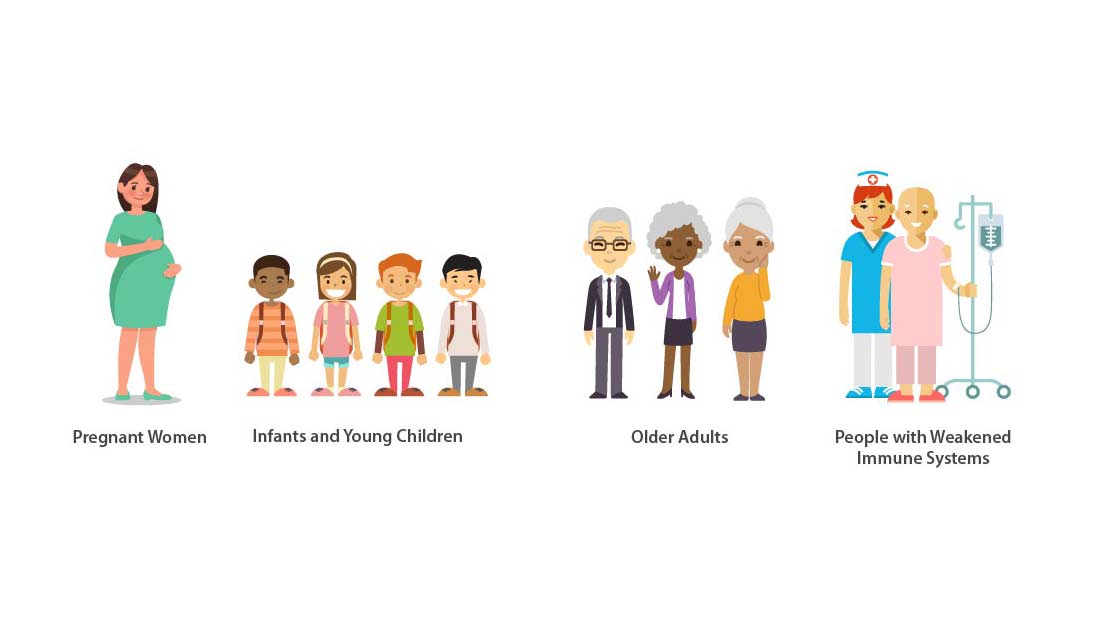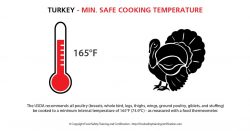- Advertisement -

Popular
Turkey Food Safety Tips
Raw poultry (turkey, chicken, duck, goose, quail, etc.) may contain harmful bacteria such as Salmonella and Campylobacter. Proper preparation, cooking, and storage procedures must be followed - or a foodborne illness can occur.
Norovirus Prevention
Norovirus is a highly contagious virus and the most common viral foodborne illness. Norovirus infection is acquired by consuming produce (fruit and vegetables) irrigated with contaminated water contaminated with human or animal feces - or shellfish farmed or harvested in water contaminated with human sewage. Because only a few norovirus particles can make people sick, infection can also occur by consuming food handled by a person infected with the virus - or being in direct contact with an object, surface, or person that has been infected.
Food Safety for Raw Oysters
Raw shellfish (e.g. oysters, clams, mussels) can pose an increased risk to be contaminated - as they are filter feeders and become contaminated when their waters are polluted with raw sewage and bacteria.
Food Safety for Grilling Parties
Summer's almost over and it's time to plan for one last long weekend party. But remember, it's still warm - so that presents increased food safety dangers. Savor the end of summer with good food and friends - and not a foodborne illness.
Grilling and BBQ Food Safety
Summer months brings out everyone's barbecue grills. But, in warmer temperatures - additional food safety care must be taken because bacteria multiply faster. Following a few simple principles and guidelines can prevent a food illness.

























